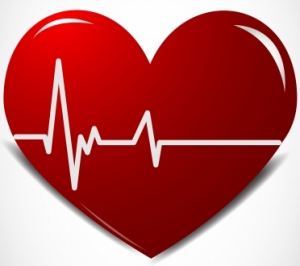February is Heart Month
February 1, 2016 | Community News
 Heart disease is the leading cause of death for both men and women. To prevent heart disease and increase awareness of its effects, the New Jersey Partnership for Healthy Kids (NJPHK) is proudly participating in American Heart Month. New Jersey has the 27th highest death rate from cardiovascular disease in the country.*
Heart disease is the leading cause of death for both men and women. To prevent heart disease and increase awareness of its effects, the New Jersey Partnership for Healthy Kids (NJPHK) is proudly participating in American Heart Month. New Jersey has the 27th highest death rate from cardiovascular disease in the country.*
Certain factors play important roles in a person’s chances of developing heart disease. These risk factors include: high blood pressure, high cholesterol, smoking, obesity and physical inactivity. Some risk factors can be changed, treated, or modified, and some cannot. Many risk factors can be controlled early in life, lowering the risk of heart disease later in life. Other risk factors are passed down through family members (they are hereditary) or are the result of another illness or disease.
Childhood obesity is a serious problem in the United States. According to the Centers for Disease Control and Prevention, 17 percent are overweight or obese –that’s nearly 13 million kids between ages 2 and 19. As a result, there has been a sharp rise in obesity-related problems like type 2 diabetes, which is usually seen only in adults. Because obese children are more likely to be obese adults, preventing or treating obesity in childhood may reduce the risk of adult obesity. In turn, this may help reduce the risk of heart disease, diabetes, and other obesity-related diseases.
NJPHK is focused on advancing health equity through a variety of prevention strategies such as promoting healthier food in schools, childcare centers and corner stores, opening supermarkets in underserved neighborhoods, implementing shared-use agreements and designing safe and accessible streets, parks, walkways and bike trails for children and adults. Through these environmental and policy changes, we can continue to reverse the childhood obesity epidemic and make a difference in the health of our communities and children in New Jersey.
* Source: List includes Puerto Rico and D.C. Based on 2007-09 age-adjusted death rates (ranked from worst to best CVD health). American Heart Association. Heart Disease and Stroke Statistics, 2013
SHARE:
Contact Us: 609-278-9622
Follow Us On: